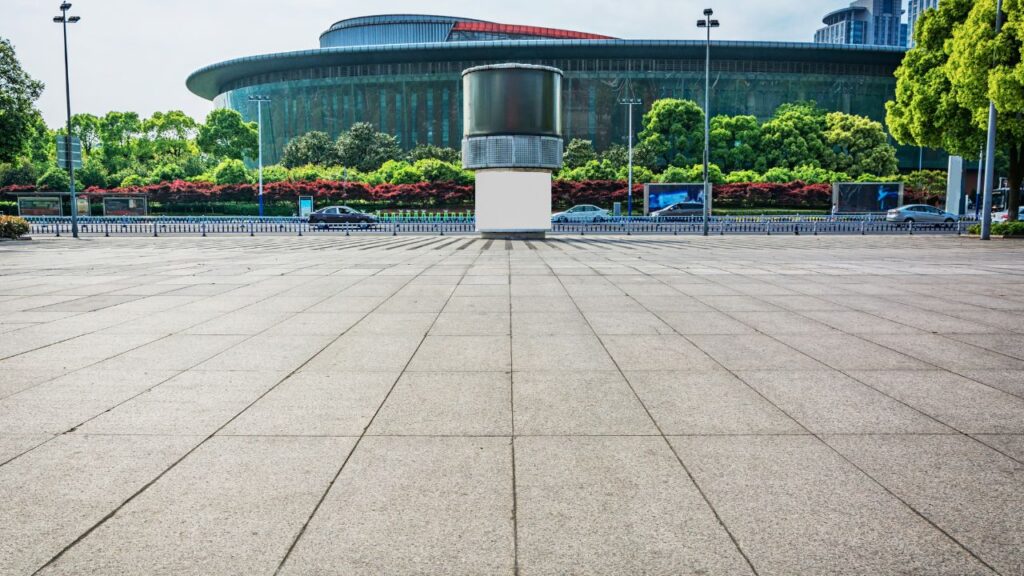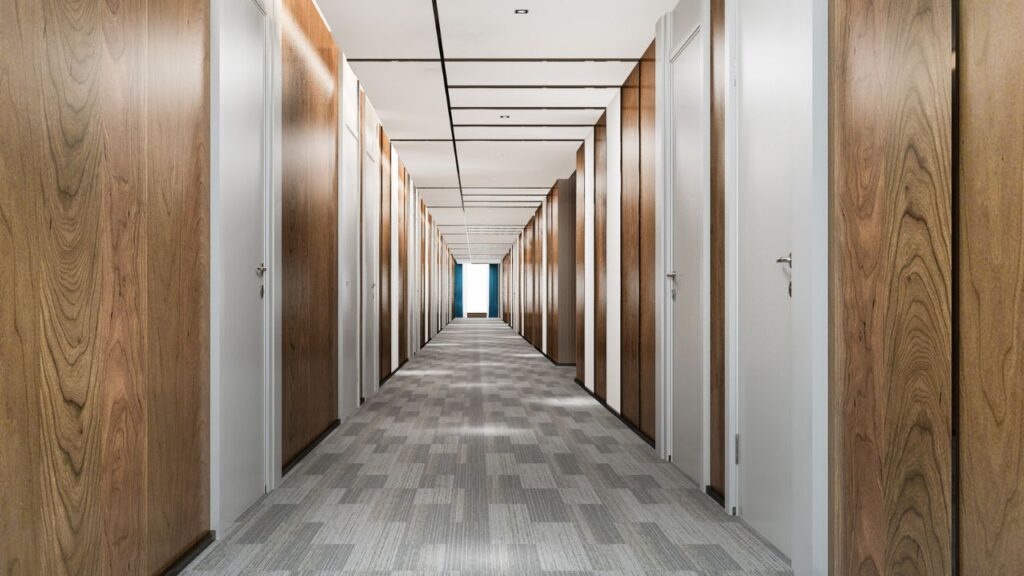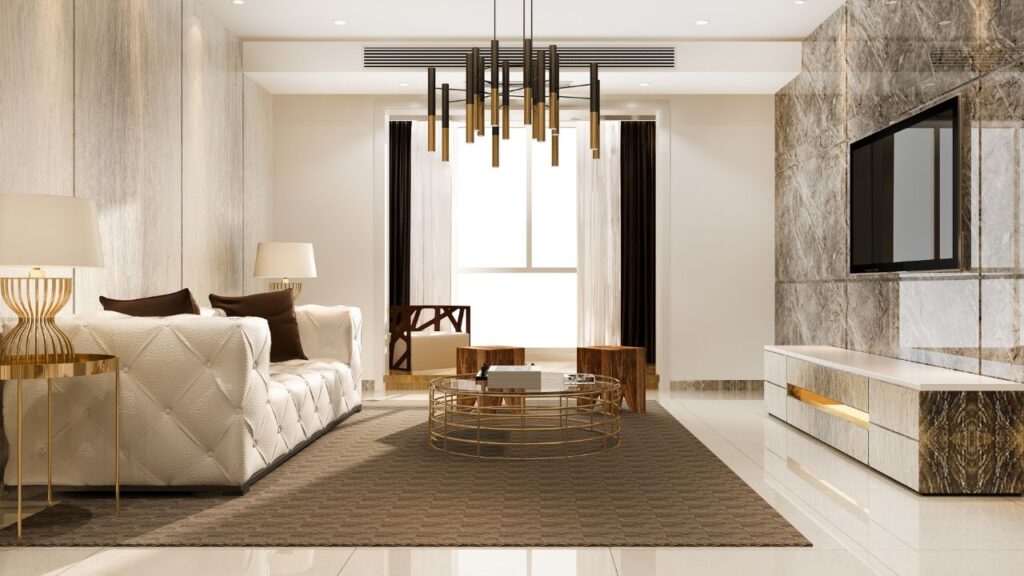Our Experience
- We provide estimates without any hassle.
- We have 30+ years of experience.
Whether you’re envisioning an upscale commercial space with the polished professionalism that Doral exudes, or you’re embarking on the creation of a cozy and inviting residential haven in this vibrant Florida locale, the journey begins with a deep dive into understanding the potential costs involved in your flooring transformation. Beyond the allure of enhancing visual appeal, the expenses associated with your flooring venture encompass an intricate interplay of form and function, as well as prudent fiscal planning. This comprehensive guide delves into the multifaceted realm of estimating flooring costs in the heart of Doral, where a fusion of cultural diversity and modern aspirations thrive.

By delving into the specifics of flooring materials, installation intricacies, and the nuanced balance between durability and aesthetics, we empower you to embark on a journey of well-informed decisions, finely calibrated to the unique parameters of your ambitious commercial project or the intimate aspirations of your dream residential abode. We recognize that your investment extends beyond monetary considerations; it reflects your vision and your commitment to creating a space that resonates with your identity. We traverse beyond the surface, ensuring that your flooring undertaking not only exudes elegance but also stands as a testament to sound financial acumen and an unwavering dedication to crafting spaces that inspire.
The choice of flooring material plays a pivotal role in determining the overall cost of your flooring project. When considering the type of flooring, you’ll encounter a spectrum of options each with its own price range. For instance, the elegance and durability of hardwood flooring are often accompanied by a relatively higher cost compared to more budget-friendly alternatives like laminate flooring. While hardwood exudes timeless beauty and can be a long-term investment, laminate offers a similar aesthetic appeal at a lower upfront cost, making it an attractive option for those looking to balance elegance and budget.
The size of the area you plan to cover with new flooring is a fundamental aspect that directly influences the total expenses of your project. Larger spaces naturally demand more flooring material, which in turn affects the overall budget. Beyond just the raw square footage, factors like room layout, the presence of alcoves or irregular corners, and the need for intricate cuts around fixtures can further impact the required amount of flooring material. It’s important to account for these variations in your cost estimates.
The complexity of the installation process can significantly impact the cost considerations. If you’re envisioning intricate patterns, artistic inlays, or complex tile layouts, it’s important to anticipate higher installation charges. This is because such designs necessitate skilled craftsmanship, meticulous planning, and additional time commitment from the installation team. On the other hand, straightforward layouts and standard installation methods may incur lower labor costs.
The journey towards a flawless flooring installation often involves essential preparatory steps that can influence the overall project cost. Repairing or leveling the subfloor, addressing moisture concerns through the use of barriers or treatments, and removing existing flooring materials all contribute to the expenses. While these steps may add upfront costs, they are crucial to ensuring the longevity and integrity of your new flooring. Neglecting these preparatory tasks could lead to future issues, potentially resulting in higher costs down the line for repairs and replacements.
Hardwood flooring stands as a timeless symbol of elegance and durability, adding a touch of sophistication to any space. Its appeal lies not only in its natural beauty but also in its remarkable ability to age gracefully, gaining character over time. The cost of hardwood flooring can vary significantly based on several factors, including the type of wood species you opt for, such as oak, maple, cherry, or exotic woods like Brazilian cherry. Additionally, the finish you choose, whether it’s a high-gloss polish or a more rustic hand-scraped look, can influence the overall cost. It’s important to note that while hardwood may have a higher upfront investment, its longevity and potential to increase property value make it a wise long-term choice for discerning homeowners.
Laminate flooring emerges as a practical and cost-effective alternative to hardwood, capturing the visual essence of natural wood at a fraction of the price. With advancements in manufacturing techniques, laminate flooring has evolved to mimic the textures, grains, and even imperfections found in real wood. This cost-efficient solution allows homeowners to achieve a similar aesthetic appeal without compromising on quality. Additionally, the cost savings extend to installation, as laminate’s click-and-lock mechanisms often make it easier to install compared to traditional hardwood planks. While laminate may lack the organic authenticity of hardwood, it compensates with its durability, easy maintenance, and budget-friendly attributes.

Tile flooring encompasses a diverse range of materials, each with its unique attributes and cost considerations. Ceramic tiles, known for their affordability, are a practical choice for high-traffic areas or rooms prone to moisture. Porcelain tiles, on the other hand, offer enhanced durability and a broader array of design options, often coming in styles that convincingly mimic natural stone or wood textures. Natural stone tiles, including options like marble, granite, or travertine, radiate luxury but typically come at a higher price point due to their exquisite beauty and premium quality. The versatility of tile flooring allows it to thrive in spaces such as kitchens, bathrooms, entryways, and even outdoor patios, catering to both aesthetic preferences and functional needs.
Carpet flooring invites comfort and warmth into your living spaces, creating a cozy atmosphere that appeals to both sight and touch. The cost of carpeting can vary widely based on factors such as the type of fiber used, the pile height (thickness), and the overall quality. Nylon, polyester, and wool are among the common carpet materials, each offering distinct advantages in terms of durability, stain resistance, and texture. Additionally, the style of the carpet, whether it’s a plush cut pile, a practical loop pile, or a stylish cut-and-loop pattern, can contribute to cost variations. While carpeting may require more regular maintenance compared to hard surface flooring options, its ability to provide insulation, reduce noise, and offer a soft underfoot experience adds to its appeal, especially in bedrooms, family rooms, and areas where comfort is a priority.
Here is a table detailing various flooring materials along with their corresponding cost details:
Flooring Material | Average Cost per Square Foot |
Hardwood | $9.60 – $14.40 |
Laminate | $2.40 – $6.00 |
Tile (Ceramic) | $6.00 – $12.00 |
Tile (Porcelain) | $8.40 – $14.40 |
Vinyl | $1.20 – $6.00 |
Carpet | $2.40 – $9.60 |
Natural Stone | $8.40 – $24.00 |
Bamboo | $4.80 – $9.60 |
Cork | $3.60 – $9.60 |
These cost ranges are approximate and can vary based on factors such as quality, location, and additional expenses like installation and preparation. It’s advisable to gather multiple quotes and consult with professionals to get a more accurate estimate for your specific project.
When embarking on a flooring project, it’s essential to grasp the concept of cost per square foot, as this metric serves as a foundational element in estimating your overall expenses. The cost per square foot encapsulates both material and installation expenses within a unified framework. For instance, if you’re considering hardwood flooring with a cost of $5 per square foot, this figure accounts for the wood itself as well as the labor involved in installing it. Calculating the total square footage of the area you plan to cover allows you to project costs more accurately and make informed decisions that align with your budgetary considerations. Keep in mind that the cost per square foot can vary across different flooring types due to material costs, installation complexity, and other factors.
Enlisting professional installation services introduces a crucial component into your cost analysis: labor expenses. The intricacies of the chosen flooring material can influence the level of expertise and time required for installation. For instance, intricate patterns or unique layouts may demand more skilled labor, leading to potential increases in labor costs. Conversely, some flooring options, such as laminate or tile with straightforward installation methods, might incur lower labor expenses. It’s prudent to solicit quotes from reputable installation experts, factoring in their experience, reputation, and any potential additional charges for specialized work. By understanding the nuances of labor expenses, you can make an informed decision about the balance between DIY endeavors and professional installation, ultimately impacting your overall budget allocation.
While flooring material and labor constitute the core components of your budget, it’s imperative to account for a spectrum of additional cost considerations that contribute to a comprehensive project estimate. Underlayment, a vital layer between the subfloor and the flooring material, ensures stability, insulation, and noise reduction. The type and quality of underlayment can impact both cost and performance. Adhesives, essential for securing tiles, planks, or other flooring types, come with associated expenses that need to be factored in. Transitions, whether between different flooring materials or transitioning from one room to another, require thoughtful planning and may incur additional costs. Moreover, essential accessories like moldings, trim, and baseboards play a role in achieving a polished and cohesive look, warranting a place in your budget calculations. By embracing a comprehensive perspective, you safeguard against unexpected expenses and foster a more accurate representation of the total investment required for your envisioned flooring transformation.

When confronted with the prospect of flooring installation, a pivotal decision arises: Should you embark on a do-it-yourself (DIY) endeavor or entrust the task to seasoned professionals? This choice involves a complex interplay of factors that extend beyond mere financial considerations, delving into realms of expertise, time commitment, and potential pitfalls.
Opting for a DIY installation can be enticing, primarily due to the potential cost savings it offers. By taking matters into your own hands, you have the opportunity to cut down on labor expenses and exercise a sense of creative control. Engaging in a DIY project can also be personally fulfilling, allowing you to connect with your living space on a deeper level. Moreover, with an abundance of online tutorials and step-by-step guides, embarking on a DIY flooring journey has never been more accessible. However, it’s important to recognize that DIY flooring installation can be a formidable undertaking. It requires a level of skill, precision, and knowledge about the specific flooring type that may take time to acquire. The process involves a series of intricate steps, from accurate measurements and subfloor preparation to ensuring proper adhesion and achieving seamless transitions. Mistakes in any of these stages can lead to subpar results, necessitating costly repairs or even a complete reinstallation. It’s crucial to assess your own skillset, availability, and willingness to invest the necessary time and effort before committing to a DIY project.
Enlisting professional installers brings a level of expertise and efficiency that can significantly impact the outcome of your flooring project. Seasoned professionals possess the know-how to navigate challenges, troubleshoot unforeseen issues, and deliver a polished finish. Their experience ensures that intricate patterns align seamlessly, transitions are flawless, and the flooring material is installed to its optimal lifespan.
While professional installation involves upfront labor costs, it mitigates the risks associated with potential mistakes. The financial investment can translate into long-term savings by avoiding future repairs or replacements that may arise from errors in DIY installations. Additionally, professional installers often have access to specialized tools and equipment, ensuring a higher standard of workmanship.
Ultimately, the decision between DIY and professional installation hinges on finding the right balance for your unique circumstances. If you possess the requisite skills, time, and confidence, DIY may be a rewarding venture. However, if you value a streamlined, expertly executed process and seek to minimize potential setbacks, professional installation presents a compelling proposition. Evaluating your proficiency, budget, and project goals will guide you toward the choice that aligns with your vision for a stunning and enduring flooring transformation.
Embarking on a flooring project demands a foundation of knowledge, making thorough research an indispensable first step. Immerse yourself in the world of flooring by exploring the myriad options available. Delve into the characteristics, benefits, and drawbacks of various materials such as hardwood, laminate, tile, and carpet. Each material not only carries its unique aesthetic appeal but also comes with specific cost considerations tied to its quality, longevity, and installation intricacies. Understanding these nuances equips you to make an informed decision that aligns both with your stylistic preferences and financial constraints.
Crafting a budget serves as a compass that guides your flooring journey through the labyrinth of choices. Begin by assessing your overall financial landscape and determining a budget that aligns with your resources. While it’s tempting to fixate solely on material costs, it’s equally crucial to factor in other essential elements like labor, underlayment, adhesives, and any necessary accessories. These often-overlooked expenses can accumulate and impact your financial plan. As you establish your budget, consider leaving room for unexpected costs that may arise during installation or due to unforeseen structural issues. A flexible budget helps you navigate the terrain with confidence, adapting to changing circumstances without derailing your project.
While the allure of immediate cost savings is undeniable, a prudent approach to budgeting extends beyond the present moment. Shift your perspective to encompass the long-term implications of your flooring choices. While a higher upfront investment in premium materials like hardwood may seem daunting, it’s vital to recognize their potential to enhance the value of your home over time. Conversely, opting for a cheaper material might result in higher maintenance and replacement costs down the road. Prioritize durability and assess the maintenance requirements of each flooring type. Factor in aspects like resistance to wear and tear, moisture resilience, and ease of cleaning. By considering the long-term costs and benefits, you ensure that your flooring project is a sound investment that contributes to the overall value and comfort of your living space.
Estimate Florida Consulting is your dedicated ally, committed to simplifying the intricate process of selecting the perfect flooring contractor for your esteemed Doral project. Our well-established network comprises highly skilled professionals, each meticulously selected for their expertise in delivering impeccable flooring installations that resonate with your unique vision. Whether your heart is set on the enduring elegance of hardwood, the contemporary allure of tile, or the plush comfort of carpet, our tailored approach ensures a harmonious fusion of your design aspirations and project requirements. Rooted in transparency, we provide you with comprehensive estimates and offer an insightful glimpse into each contractor’s credentials, past projects, and client endorsements. With Estimate Florida Consulting at your side, embark on your flooring journey with unwavering confidence, secure in the knowledge that you’re forging a partnership that promises not only to enhance the aesthetics and functionality of your space but also to amplify its long-term value and appeal, leaving an indelible mark of distinction.
Maximize your Flooring business’s potential with our competitive financing options

Maintaining the longevity and appeal of your flooring is a commitment that pays off not only in aesthetics but also in long-term financial savings. By implementing a regimen of proper care, consistent cleaning, and prompt attention to minor concerns, you can significantly extend the life of your flooring investment.
Routine cleaning stands as the cornerstone of effective flooring maintenance. Different flooring materials necessitate specific cleaning methods to ensure their durability and visual allure. Hardwood floors, for instance, benefit from regular sweeping or vacuuming to prevent the accumulation of abrasive particles that can wear down the finish. Using manufacturer-recommended cleaning solutions ensures that you’re preserving the integrity of your flooring material. For laminate or tile floors, a combination of sweeping and damp mopping can help prevent dirt buildup and maintain their luster.

Carpeted areas require regular vacuuming to prevent soil penetration, which can lead to fiber damage over time. By adhering to a consistent cleaning schedule, you not only enhance the aesthetics of your space but also prevent the need for more intensive cleaning procedures down the line.
The adage “a stitch in time saves nine” holds true when it comes to flooring maintenance. Minor issues, if left unattended, can escalate into major problems that demand costly repairs or even replacement. Promptly addressing issues such as loose tiles, minor scratches, or frayed carpet edges can prevent further deterioration. For example, repairing a loose tile prevents moisture from seeping underneath and causing subfloor damage, while addressing a scratch on hardwood prevents it from deepening and requiring a full refinishing. By taking swift action and dealing with these minor concerns as they arise, you safeguard your flooring investment and avoid more substantial expenses in the future.
Understanding the unique requirements of your chosen flooring material is paramount in effective maintenance. Hardwood floors may benefit from occasional polishing to restore their sheen and protect the wood. Tile floors might require grout cleaning and occasional resealing to prevent staining and water infiltration. Carpeted areas can be revitalized with periodic professional cleaning to remove deeply embedded dirt and allergens. Tailoring your maintenance practices to the characteristics of your flooring type ensures that you’re optimizing their lifespan and appearance.

Looking for a reliable construction equipment rental company? Look no further. Rent from us today.
Elevating the worth and desirability of your property goes hand in hand with the strategic investment in high-quality flooring. The impact of premium flooring materials extends far beyond aesthetics, as it has the potential to leave a lasting impression on potential buyers or tenants, ultimately enhancing your property’s market value.
First impressions are indelibly tied to the visual allure of a space, and flooring plays a pivotal role in creating an immediate impact. Quality flooring exudes an air of sophistication and craftsmanship, setting a positive tone as soon as visitors step through the door. Whether it’s the warmth of hardwood, the pristine elegance of tile, or the plush comfort of well-maintained carpet, the flooring choice resonates with potential buyers on a visceral level. This positive initial experience can trigger an emotional connection, leaving a lasting impression that influences their perception of the entire property.
High-quality flooring not only captures attention but also stands as a testament to durability and longevity. Potential buyers or tenants are likely to be drawn to flooring materials that promise both enduring aesthetics and the assurance of lasting performance. Hardwood floors, for instance, can withstand the test of time and wear, retaining their charm and value for years to come. Tile flooring, known for its resilience and resistance to moisture, signals a low-maintenance and worry-free living experience. By showcasing such attributes, you’re positioning your property as a reliable investment that will continue to hold its appeal over the long haul.
Quality flooring isn’t just a visual asset; it contributes to the functionality and lifestyle appeal of a space. Buyers and tenants often prioritize features that align with their daily needs and aspirations. For instance, families may value the durability and easy cleanability of hardwood or laminate, while individuals seeking luxurious living spaces might be drawn to the opulence of marble or high-end carpeting. By catering to diverse lifestyles and preferences, you expand the pool of potential buyers or tenants, enhancing your property’s marketability and value.

Navigating the realm of estimating flooring costs necessitates a comprehensive evaluation of a multitude of factors. From the intrinsic characteristics of the chosen flooring material to the intricacies of installation expenses and the essential preparatory steps, each facet plays a crucial role in shaping the overall financial landscape of your project. By delving into the complexities of these components and understanding their interplay, you empower yourself to make a well-informed decision that harmonizes both with your budgetary considerations and your creative design aspirations.
The type of flooring material serves as a foundational determinant, setting the tone for the project’s scope and cost. Whether it’s the timeless allure of hardwood, the cost-effective versatility of laminate, the varied textures of tile, or the comfort of carpet, your choice resonates not only with aesthetics but also with financial implications.
For high-traffic areas, durable options like tile or hardwood with a protective finish are recommended.
Hardwood is generally not recommended for bathrooms due to moisture concerns. Consider alternatives like tile or vinyl.
Professional installation ensures proper fitting and durability, reducing the risk of issues down the line.
Yes, options like bamboo, cork, and reclaimed wood are eco-friendly choices that can add a unique touch to your space.
The frequency of refinishing depends on factors like wear and tear. On average, hardwood floors may need refinishing every 5-10 years.
Request a free quote or call us at: +1(561)530-2845 to start working with us

Here I am going to share some steps to get your residential and commercial flooring cost estimate report.
You can send us your plan on info@estimatorflorida.com
Before starting your project, we send you a quote for your service. That quote will have detailed information about your project. Here you will get information about the size, difficulty, complexity and bid date when determining pricing.
We do residential and commercial flooring cost estimating and prepare a detailed report for your project. At last, you finalize the report and finish the project.



This cultural hub celebrates the diverse heritage of the city’s residents. The Doral Cultural Village showcases art, music, dance, and culinary traditions from various cultures represented in the community. Visitors can attend cultural festivals, workshops, and performances that promote understanding and appreciation of different traditions.
Film aficionados will appreciate the Doral Film Festival, a celebration of cinema from around the world. This annual event screens independent films, documentaries, and short movies, offering a platform for emerging filmmakers to showcase their talent.
When the sun sets, the Doral Night Bazaar comes to life. This bustling nighttime market offers a vibrant atmosphere with a variety of food stalls, artisanal crafts, live music, and entertainment. It’s a great place to experience the local nightlife and soak in the energy of the city after dark.
Embrace the farm-to-table concept at the Doral Farmers Market. This vibrant market offers fresh produce, artisanal products, homemade treats, and handcrafted goods from local vendors. It’s an excellent opportunity to support local businesses and indulge in delicious, organic foods.
561-530-2845
info@estimatorflorida.com
Address
5245 Wiles Rd Apt 3-102 St. Pete Beach, FL 33073 United States
561-530-2845
info@estimatorflorida.com
Address
5245 Wiles Rd Apt 3-102 St. Pete Beach, FL 33073 United States
All copyright © Reserved | Designed By V Marketing Media | Disclaimer
IMPORTANT: Make sure the email and cell phone number you enter are correct. We will email and text you a link to get started.
By clicking “I Agree” above you give Estimate Florida Consultin express written consent to deliver or cause to be delivered calls and messages to you by email, telephone, pre-recorded message, autodialer, and text. Message and data rates may apply. You are able to opt-out at any time. You can text STOP to cancel future text messages.
